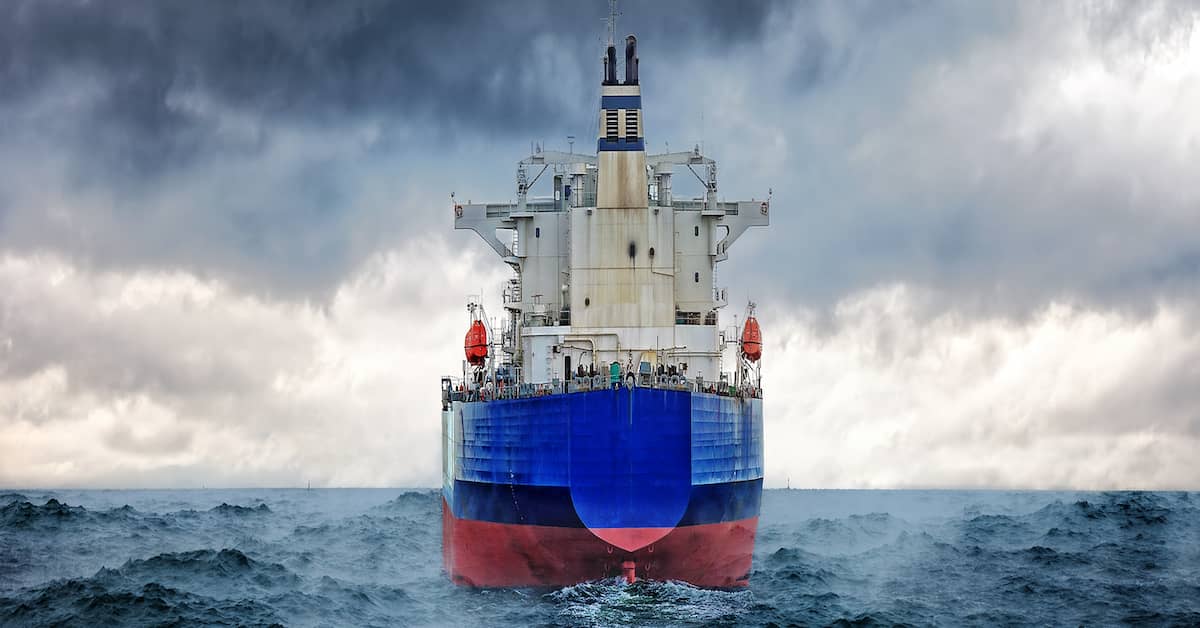
Maritime law comes into play when you suffer serious injuries in an accident at sea or in navigable waters. Knowing what steps to take after your injury can feel overwhelming. Especially when your uncertainty is heightened because of your pain or if immediate access to medical care isn’t available.
The good news is that maritime law provides many protections for workers and passengers who are injured at sea—in some cases, greater protections than land-based claims.
The bad news is that the law can be extremely complex. Determining whether your situation falls under these laws and, if so, which ones is not simple for a layperson.
That’s where we come in. Patrick Daniel is a deeply experienced Houston maritime injury lawyer with the knowledge, resources, and Strategic. Meticulous. Merciless. approach needed to help maritime injury victims pursue compensation.
To discuss whether your claim falls under maritime law, call us today at (713) 999-6666 and schedule your FREE consultation. We work with maritime accident victims in Houston, Texas, and throughout the nation.
Maritime law, also known as admiralty law, is a set of laws that govern legal matters related to incidents that occur on oceans, rivers, and other navigable waters. It encompasses a variety of legal areas, including:
One of the most important aspects of these laws is the protection provided to seamen, maritime workers, and vessel passengers who are injured while at sea.
Since local and state laws do not generally apply to injuries that occur at sea, admiralty law is critical for those injured on the job or due to the negligence of another. Think of it, in simple terms, as both the workers’ compensation and personal injury laws of the sea.
For an injury claim to fall under admiralty law, a couple of things must be true:
In some situations, state law and maritime law overlap. This can make determining whether or not you have a viable maritime claim a complex process.
Ultimately, several laws make up admiralty law, each with its own rules and criteria. Working with a deeply experienced maritime injury attorney is often the best way to determine whether the law applies to your claim.
To determine what compensation you may be eligible for, the first step is knowing which part of the law your claim falls under.
Here are some of the most common examples of admiralty law:
Part of the Merchant Marine Act, the Jones Act lays out protections for maritime employees, technically designated as “seamen.” It requires owners of vessels to maintain safe, seaworthy vessels for workers. When they fail to do so, workers may be able to pursue compensation to cover damages.
Even if an employer or ship owner was not negligent in their duty to maintain a safe, seaworthy vessel, if a seaman is injured on the job, they are still eligible for maintenance and cure benefits, which are provided on a no-fault basis.
These benefits cover medical costs and payments for day-to-day expenses while a worker recovers. While these benefits are useful, they are limited in scope, so you should always consider whether you may also be able to pursue additional compensation under the Jones Act.
The LHWCA provides protections for maritime workers who are not at sea but work in maritime-related areas, including longshore workers, shipbuilders, and others who work on docks, piers, shipyards, and other maritime locations. Workers who qualify for LHWCA benefits can receive payments for medical expenses, rehabilitation services, disability, and more.
Passenger injuries can also be covered under maritime common law in specific situations. Boat owners, manufacturers, rental companies, and other parties could be held liable for damages if their negligence directly resulted in a passenger’s injuries and damages.
If a maritime worker or passenger is killed in an accident at sea, surviving family members may be eligible for economic damages under the DOHSA.
Unfortunately, determining eligibility under any of these laws can be daunting for anyone not deeply familiar with the intricacies of maritime law. Nevertheless, it is crucial to pursue every possible avenue to ensure you recover the compensation you need and deserve.
An experienced maritime injury lawyer can take the legal burden off injured accident victims’ shoulders.
Some of the key ways we can do this include:
It’s important to keep in mind, however, that you should not work with just any attorney to handle your maritime law case. Even the best personal injury and workers’ compensation lawyers may not have the knowledge and experience in admiralty law specifically to be able to represent you effectively.
Trying to understand maritime law and how it may apply to your injuries can be a frustrating, confusing process. You don’t have to face it alone. At Patrick Daniel Law, we have vast experience handling these cases, and we’re here to help you through your situation by providing the guidance and representation you need.
Our mission is simple: to help maritime injury victims receive the compensation they need and deserve. Contact our maritime injury lawyer today for a FREE consultation.
 Top Truck Accident Lawyer in Pasadena
Top Truck Accident Lawyer in Pasadena Best of The Best Attorneys
Best of The Best Attorneys Best of the Best Houston Chronicle 2021
Best of the Best Houston Chronicle 2021 Best Motorcycle Accident Lawyers in Houston 2021
Best Motorcycle Accident Lawyers in Houston 2021 American Association for Justice Member
American Association for Justice Member The National Trial Lawyers 2016 – (Top 40 under 40)
The National Trial Lawyers 2016 – (Top 40 under 40) Multi-Million Dollar Advocates Forum 2016 (Top Trial Lawyer)
Multi-Million Dollar Advocates Forum 2016 (Top Trial Lawyer) Million Dollar Advocates Forum 2019 (Top Trial Lawyer)
Million Dollar Advocates Forum 2019 (Top Trial Lawyer) America’s Top 100 Attorneys 2020 (High Stake Litigators)
America’s Top 100 Attorneys 2020 (High Stake Litigators) Lawyers of Distinction 2019, 2020 (Recognizing Excellence in Personal Injury)
Lawyers of Distinction 2019, 2020 (Recognizing Excellence in Personal Injury) American Institute of Personal Injury Attorneys 2020 (Top 10 Best Attorneys – Client Satisfaction)
American Institute of Personal Injury Attorneys 2020 (Top 10 Best Attorneys – Client Satisfaction) American Institute of Legal Advocates 2020 (Membership)
American Institute of Legal Advocates 2020 (Membership) Association of American Trial Lawyers 2018 - Top 100 Award recognizing excellence in personal injury law
Association of American Trial Lawyers 2018 - Top 100 Award recognizing excellence in personal injury law American Institute of Legal Professionals 2020 (Lawyer of the Year)
American Institute of Legal Professionals 2020 (Lawyer of the Year) Lead Counsel Verified Personal Injury 2020
Lead Counsel Verified Personal Injury 2020 The Houston Business Journal 2021
The Houston Business Journal 2021